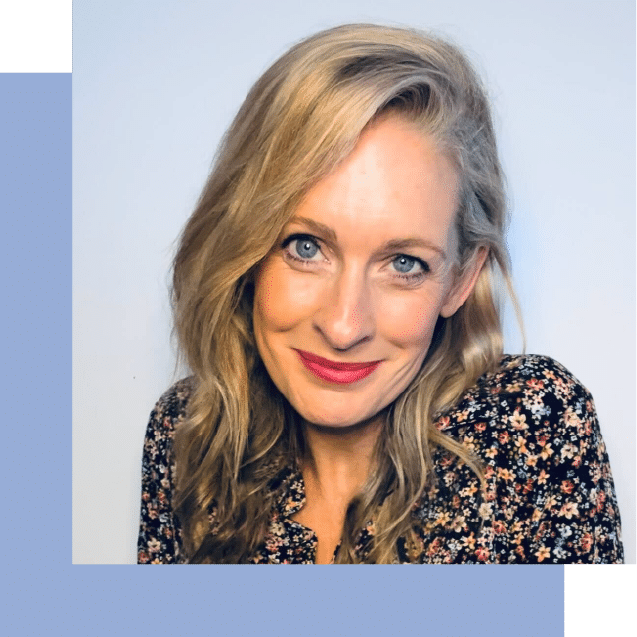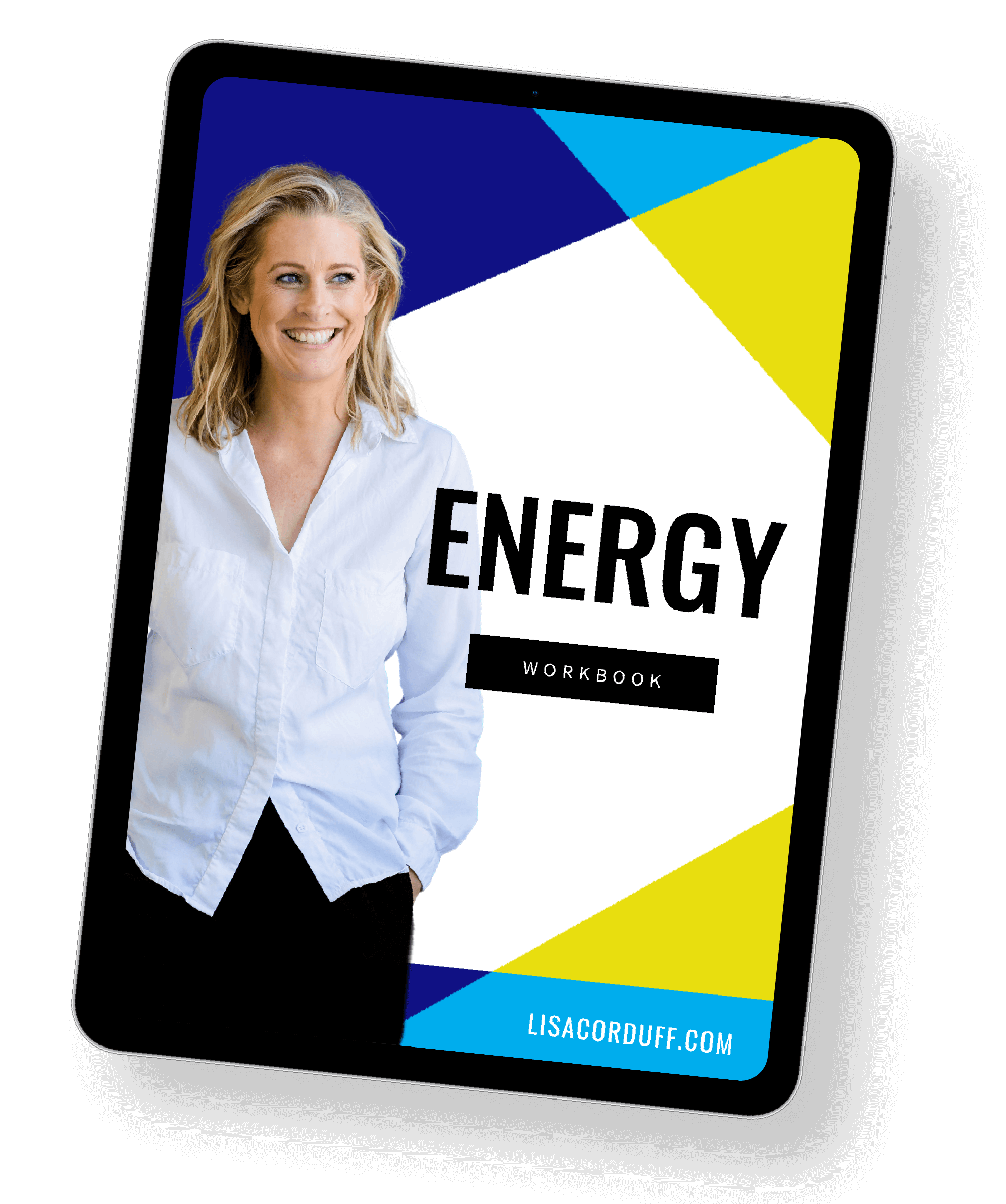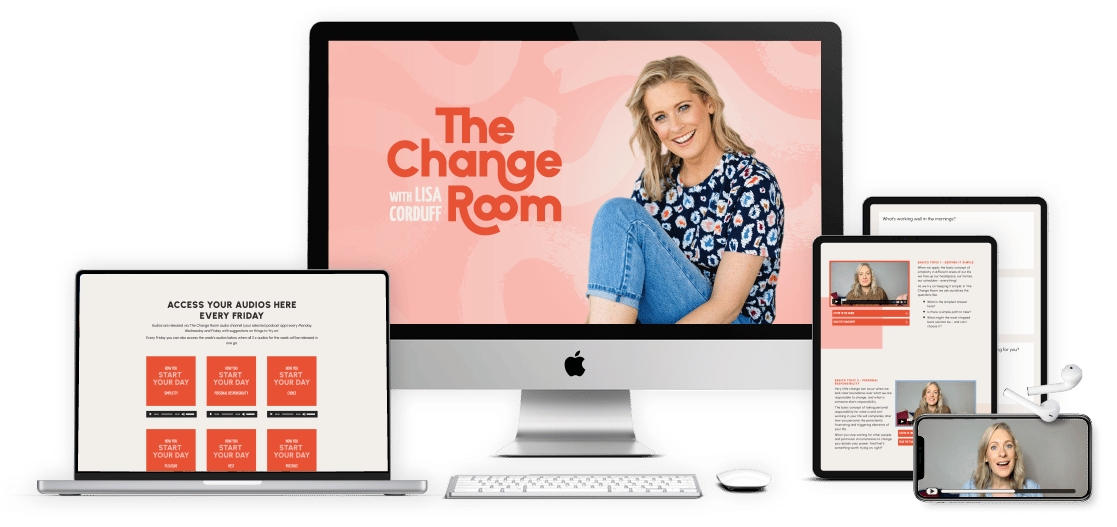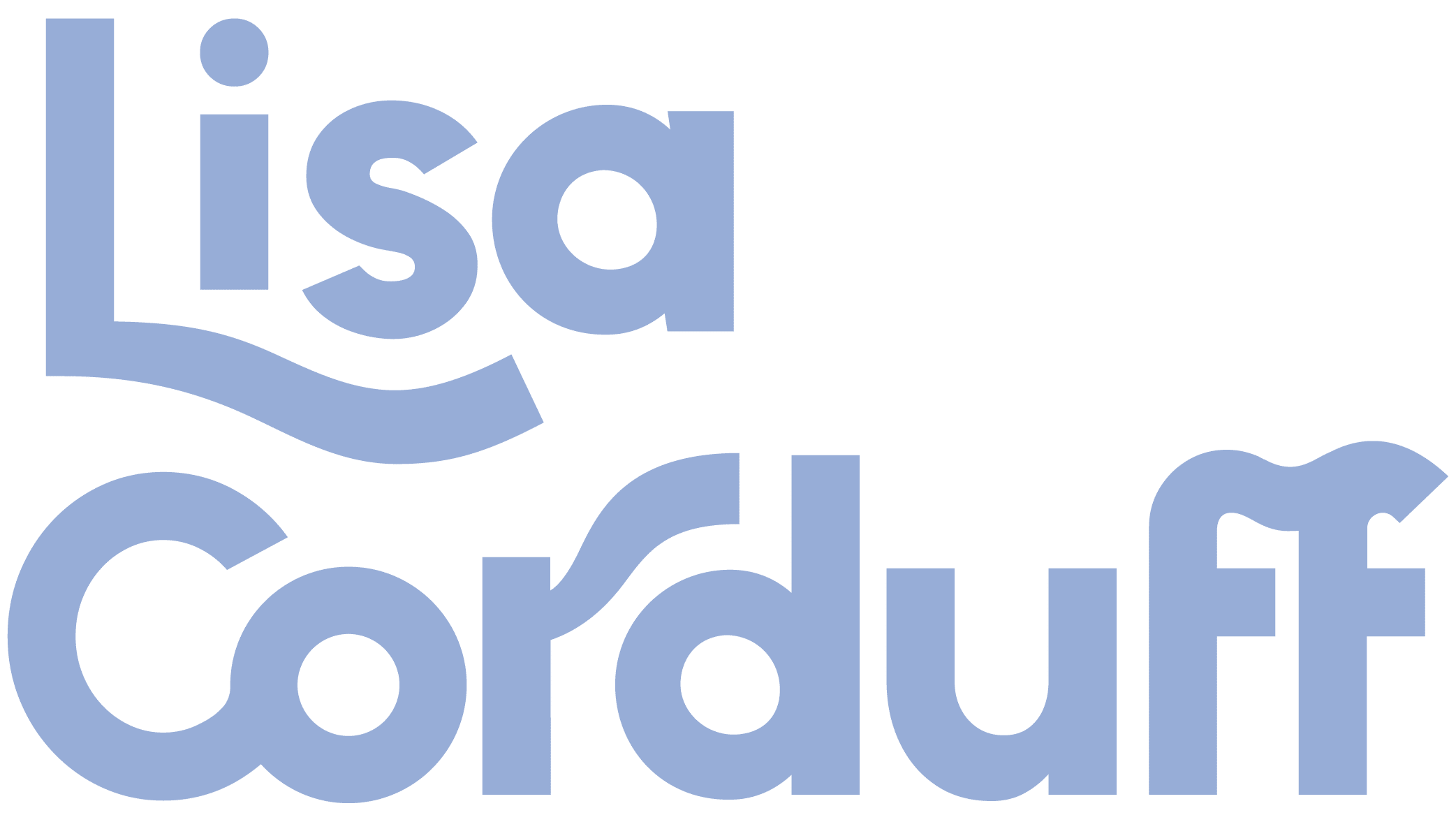

Sweden is often painted as this idyllic progressive planet and people friendly utopia, but is that the reality?
In this episode, Lisa shares her observations of life in Sweden… and whilst it is a kind of progressive wonderland it’s certainly not all riding bikes and universal healthcare.
Stay tuned for part 2 of Swedish observations, where Lisa chats to her dear friend Anna about how life really is in the land of the midnight sun.
Continue your conversation with Lisa:
Know someone who would love this episode?
Share it with them here (um, and a hefty handful of stars would be greatly appreciated!)
Prefer to read? Access the transcript here.
Oh, hey. Like literally. Hey, H E J. Hey. Hey. We are in Sweden. Actually, I’m recording this the night before we leave and I have to apologize. This house I didn’t think would be very good for recording. There is a, uh, a. Constant fan on. I can’t figure out how to turn it off and uh, I hope it’s not too distracting with the noise.
So I wondered if we could talk a little bit about this place, which I find totally awesome. There’s actually a lot that I really wanna get through and I interviewed my friend Anna, and we are going to get to that interview as well. Depending on how long I talk right now, this might be two episodes. So I wanted to, to share first why I decided to come here.
And that’s because, uh, when I was 22 I ended up finding myself sort of running out of money. Traveling around Europe, I did bus about for anyone who did the same. It was very Aussie thing to do to get around. Europe. Uh, super fun. I had met Anna, a friend in Dublin when I was working there. She actually worked at the same bar as my boyfriend at the time.
And you know those people who you just meet and you’re like, yeah, we are totally, we are totally friends. And I thought she was so cool. Turns out she thought I was cool, but whoa. You should see the pictures of me at the time.
Oh God. Anyway. I was 20, I was young, it was fresh. Uh, it was all the good times in Dublin. And so when it came to leave and she said, well, you know, if, if you end up not wanting to go home, because my boyfriend, his year long Visa would be up after we did the bus about trip. And because he’d left earlier than me and done a season in Whistler before he went before, well, I left for.
My part of the trip, I still had time up my sleeve. I also had an Irish passport, which was super helpful. Dad’s Irish, so she said, well, if you don’t wanna go home when he goes home, just come to Sweden. And it sounded so ridiculous. And of course, so that’s where I ended up. Um, we, she lived in the north of Sweden with her parents.
She was studying photography at the time. Very different in Sweden. They don’t necessarily go straight to university after school. Very much encouraged to have gap years and to figure things out. Go have fun, work for a bit, travel for a bit before you decide on what it is that you wanna do, which I think is.
Super fucking healthy. Anyway, so she was studying some photography. Her parents both worked. She had a younger sister living at home as well, and in I was welcomed to their home and I loved it. I remember when I arrived though, it was pretty cold. Got there maybe end of September. Yeah, and I left just before Christmas, and so I was there what, October, November.
Three months. And I, I just said, whoa, like, I mean, zero’s pretty cold. Just what, like how could it feel colder than this? This is freezing, like it’s just sort of cold. Then like you can’t get different degrees of cold and they’re like, oh, mm. Do you think that there’s a difference between. Zero degrees and 20 degrees, Lisa.
I was like, yeah, of course. Well, yeah, there’s a difference between zero and minus 20. Ouch. My coldest day was minus 26. I found the whole experience completely fascinating, totally magical. I, I would get the bus down. I got a job in a pub in the little town, and it honestly looked like a fairytale. And because it was dark by, well, there was probably only about four hours, five hours of daylight.
At that stage, uh, you know, by the time I left, really the sun wasn’t out for very long. So it was dark all the time and it just looked like a fairytale. The whole thing felt like a fairytale. The snow was magic. And you know, it was funny because we actually had dinner with Anna’s parents when we arrived in Stockholm and.
And they said, oh, Lisa, I remember the first time that you saw the snow fall. You were beside yourself. You, you were, you couldn’t even, you just ran outside. You couldn’t believe it. It kind of disappeared at that stage, but actual snow was falling outside the house. It ended up, a lot of snow fell. There was just snow everywhere.
It was absolutely freezing. Magic. I have such fond memories of the whole thing, and I’d never actually worked in, I’d always worked in in retail and I’d had a job in radio before I left as well, and I’d never kind of done the hospitality thing. And I absolute, I loved working in a pub. I love the feeling of getting to the end of a shift and everyone, you know, grabbing a beer, grabbing some food.
Just chilling out. It was not, it was, I really enjoyed most elements of it. And now coming back to Sweden, I’m seeing it through fresh eyes. You know, we’ve, we all look at, I think, Scandinavian countries and, and Sweden in particular through the covid years as being quite progressive, which they definitely are in loads of different ways.
But also just almost like idyllic. And, and they, they took such a different approach through the Covid years, and, and Anna talks a bit about that. I was really interested when I got here to hear from her about what it was actually really like what. What, you know, why did they choose the path that they chose, which was, you know, the kids remained in school the whole time.
There was no home learning. There was definitely people working from home, and I’ll let her explain all this, but I, you know, she really talked a little bit about the, the culture here of it’s, it’s, It’s less individualistic, I would say. You know, it’s for the common good. So they were given freedom because they also made sensible decisions.
And I just wondered, you know, if we were given the same opportunity, would we have done the same aim in Australia? I don’t know. I don’t know. It’s interesting. Anyway, we talk about that a whole heap, so I’m not gonna go into that. I’m gonna share a few little things that I didn’t cover with her and also just my, just a few of my key observations since I’ve been here and, well, one of them, I did ask my community and stories about if they had any questions for Anna, and there was one that came up a few time about babies being left in the cold.
And I asked her about it, like, do you leave your babies outside in prams to kind of build up their immune system? And she said, oh no, we don’t do it to build up their immune system. We do it because sometimes it’s hard to fit the prams inside. And if we are having fika, which is like, you know, coffee and, and something sweet, we’ll just leave them outside in their, in the pram.
Or if they’re, if they’re asleep in the pram. And we don’t wanna move them to a cott. We’ll just leave them outside sleeping until they wake up like so. So you leave prams with babies in them outside cafes? Yeah. All right. That’s what we do. Good. So there’s that question answered. It’s not necessarily because they’re trying to, to build up their immunity or, or.
Yeah, resilience against the cold. They’re bundled up and they’re totally warm and cozy. It’s just sometimes annoying to move them. Loved it. Um, and, and we look, I mean, I, we rocked up. We were, we were staying in Lund and we went down and there were two, uh, museums in Malmo that we went and saw. One day, ’cause it was kind of a cooler day, it was a bit drizzly, so we had to do inside things and the museums.
I’m like, this is not, this is basically kid heaven. The, they set the whole things up for kids. It was, they had a lot, a lot of fun. Everything really interactive. It was brilliant. And this kind of goes to the, the kid-centric nature of Swedish society that I had no idea about when I was here, when I was younger, but I’m very aware of now.
But the thing I wanted to share about this museum experience was we, there was a, a cafe sort of area we were lining up to get in. Which was horrifying, Anna, because she’s literally never had to line up to go into these places. I’d just been at Universal Studios a week before. I was not worried about this little line.
Anyway, the kids were sitting, you know, families were sitting at tables eating, and there, there were kids just sitting there with plates of salad in front of them, just munching on them. And yeah, I was just thinking about the amount of times I’ve ordered nuggets and chips and fish and chips and a burger and chips and stuff like that.
Anyway, I said to Anna, wow, you know, these kids, they are eating very healthy. They wouldn’t, you know what? And she said, oh no, that’s just the little plate of salad that goes before meals. So just. You know, everyone just while they’re waiting for their meals to come out just gets given a little plate of salad.
Of course they do. Of course they bloody do. You know, look, just fill up on some good stuff before the main meal comes. Is that smart? Yeah, and since then, being in restaurants and you’ll just get a plate of sauerkraut or something like that to just have a little bit of a side nibble before you, before you get started with your meal and stuff like that.
It’s just well thought out and it saying that, well, okay, so. Okay, let me just go. Let’s talk about climate change for a second. A lot of questions, a lot of people asking about climate change. The sense I got with this, and that I can see around me is that people are just aware. Things are just done better.
There’s much less plastic here. There’s ridiculously good recycling, uh, As we were coming in, you know, we saw just ’cause we flew into Copenhagen, so we got the train to Lund and I don’t know if it was Denmark’s or Sweden’s, wind turbines in the water, uh, as we came across. But lots of, lots of conversation, lots of talk about renewable energy.
Um, and just, just in general. They’re, they’re on it. Right? But there was this sense, I felt, and I think, you know, Anna sort of said, we’re a, we’re a small country. We’re not gonna, we can’t solve the problem. But they’re all just doing well. It’s, it doesn’t feel, I don’t know everyone in Sweden, but just the way that they do things.
It seems like their, their footprint would be a lot lighter than ours. Comes down to things like ex exceptional public transport, never having to wait long for a train or bus because it’s moving all the time. ’cause people use it because it’s good. You know, we got on a train and Anna said, oh Lisa, you might have to hop up if someone comes on with a bike.
Because I was in the bike section, there’s literally sections for bikes on the trains. A lot of people ride bikes, people don’t, and then the bikes aren’t fancy. People aren’t riding super fancy bikes. They’re riding older bikes because as Anna sort of said, you wouldn’t wanna be riding something super fancy ’cause it would just get stolen and sold for parts.
So they’re all just getting around on bikes. Hers was from like, was 20 years old or something. And it just does the job. People are walking, riding, they’re catching public transport. Cars seem like way less of a thing here. And, and you know, with, with food, she just mentioned that at school. So kids get, kids can get three proper meals a day at school and you know, if they’re dropped off early enough, they’ll get a breakfast because before.
Oh, she’ll, and she’ll tell you all of this, the prices of things, it’s ridiculous. It’s just so cheap. Two of the meals that they get each week, two of the main meals they get each week, a vegetarian. And she said, because of, you know, the footprint of meat and one is fish, it’s like, yeah, God, things are just happening here.
Well, and and on that, I mean, lunchboxes, she doesn’t make a lunchbox. The kids get fed proper food at school, good food, so you can kind of chill. Your kids are getting fed really well and I just, it just, it’s just impressive. And the allowance, they get an allowance for their children, right? This is just so everyone gets an allowance for their kids and it’s given to the parents until they’re 16.
And then if the kids stay in school and finish school, the kids get it. It’s given to the kids to help them cover expenses, to learn how to manage money, and I guess as a bit of an incentive to, to stay in school. So interesting. But here’s the thing. That I found curious was this real hardcore focus on kids.
Kids as kind of the center of, of the world of parents. And of course, I mean, you know, not saying that we are neglectful parents in Australia, but um, but I was thinking about how often I talk to the idea of. Being without my kids as kind of the holy grail. I enjoy being with them, but time away from them is really important.
And you’ll hear, well. I think it was in the interview, maybe it wasn’t, uh, talking to Anna about going out and how she just, there would always be someone with the kids, so she’d go out with her girlfriends or. Or, uh, or her husband might go out with his friends or whatever, but, and they do go out together to have a babysitter one night a week.
But the expectation would be that the kids are going with them places. Like, really, I love a little bit of adult time. Like, I really love it. Uh, and, but that’s not the way that they do it here and. The, the focus on, on kids and their, and their wellbeing, I think is so extraordinary for a number of different reasons.
I mean, it’s the, the value of children, healthy children, active children, children who are participating in family life, socially, all of the things is really, it’s, it’s, it’s really valued you, they. Are putting a lot into life for families being manageable. So she said there’s not really an expectation you’d still be at work if you’ve got children after 4, 4 30, because you have to collect them from school.
So from an afterschool care kind of program, that’s just, no one would be like, where are you going? Mm. Because that’s just what they do. But I, you know, I was looking at people, parents at the, at the playgrounds, really active with their kids. I mean, you know, not just even watching them, really playing with them, which is once again super great.
But Anna and I were both sitting there with our kind of mutual, not hatred of parks, but just, you know, it’s a bit boring and, and yet, I feel like that there is an expectation here that parents are really, really hands-on. That’s the, that’s the goal. That’s what we are wanting here. And, you know, is that I, I just looked at it and because it was just kind of so obvious to me, I was just thinking about kids and, and what they need and that constant interaction, uh, and stimulation, or do they kind of need to just.
Run off, be bored, get lost, play with friends, fall over. I don’t know. I think I am not a helicopter parent, so to see a lot of them in one place was really interesting. Like no right or wrong, but talking to Anna’s husband too, he kind of gave the sense like, Parents put their lives on hold a little bit for their children.
And I think we all do that, uh, in lots of respects. Like, I mean, life does change massively when you have children, but he has, he’s South American, so, and has lived in, in lots of different countries and has a different view of what kids need. Like the kids can go along and live life. With the parents as opposed to the parents putting their lives on hold and doing things for the kids all the time.
See the difference. And so, I mean, very interesting dynamic in their family and I just think brilliant that their kids have such, you know, parents who ha, who come from different cultures, have different expectations about the role of parents and the role of kids in families and society. Uh, we had some really amazing, robust conversations about that, that I really appreciated and that really kind of extended my thoughts on myself and how I’m raising my own children and, and how I have in the past.
And really the fact that there’s just no right or wrong. There’s just, there’s so many different ways to do stuff and just getting, getting a perspective on yourself through the lens of. The way other people do it. I love, I love, so you are really gonna enjoy the conversation with Anna. I think we were both so tired by this stage.
I hadn’t slept more than five hours a night for a number of nights, and before that there had been like a 44 hour stretch where I hadn’t been in bed. So I was pretty tired, uh, by that point. Uh, but look, key takeaway was. Even with all of the social structures to support mothers in particular, support women who were working, they’re still massively overwhelmed and beyond this conversation that I had with Anna, where she shared that with me.
We talked about it a bit, you know, the mental load falling onto to mothers still and the domestic load. So they talk. There is a lot more, they are more progressive in terms of a lot of their policies, but the patriarchy still reigns in Sweden and they don’t exist outside It. Uh, they’re trying their best to counteract or build in, well, I guess be progressive, but it’s still the same system, and that was really interesting for me to realize because I guess I thought that, Moving to somewhere like here or living somewhere like here where, and you’ll hear Anna talk about maternity leave and paternity leave and all of that sort of stuff.
You would think that surely that would mean that life as a woman, as a mother is easier. I mean, I thought about. Even just the fact that they pay no medical bills. N n, they pay N no health care at all until their child is 20. No dentist fees. No medical fees whatsoever. No ridiculous wait times in a public system.
No school fees, like absolutely none.
You, I was thinking that that level of financial relief would be nice, but no, there’s still this, it’s still most stuff is still falling onto the mothers. She feels. So it’s that same kind of tokenistic. He’s such a good dad because he blah, blah. You know? I was surprised by that. I was genuinely surprised.
We have so far to go in Australia so far. Oh my goodness. Oh, before I jump into the conversation with Anna, I do also just wanna share that the, we walked into where they’re living and I was almost in tears with how beautiful it was. She lives as like part of a community. So there’s houses, they’re small houses, and they’re mostly kind of attached and facing each other and, and they’re close, right?
They’re, they’re in a community living arrangement, and this is in, in Lund, which is a university town. Uh, oh, 120,000 people live there, 40,000 of which are students. And the students weren’t there when we were because, um, it’s holidays anyway, they share. She said, oh, you know, it’s just great because, you know, whatever his name is is an electrician, so he’ll help out with this.
I knew that you guys were coming. Uh, so I just knew that we would be able to borrow their bike and their bike and their bike. And my neighbor knew you were coming, and so she has shared her weekly public transport pass for you guys so that you don’t have to pay for it. So we’ve just transferred that to my phone so I can pay for you guys.
What, uh, what is this? Some kind of communal living Utopia. Yes it is. There’s playgrounds for the kids. They can, they’re in and out of each other’s houses all the time. There’s constant visitors. Friday nights, they just, they get together with the people in their area. They’re all outside, you know, having drinks, sharing, you know, just chatting safe.
It’s close, it’s actual genuine community. And you know, when I was talking to, when I was at her parents’ house, they really sort of said, you know her. Did she, did she explain that this is unique? This isn’t necessarily everyone. And here in Stockholm, we are staying in the guest apartment in a massive apartment block where her sister lives.
So they have a little guest place that. Um, people who live here can share with people who come and stay with them because the apartments are really small and there’s just a huge apartment block, huge apartment block, huge apart apartment block everywhere here. So not the same level of community living, uh, even although they’re in the same spot.
This was true. Uh, I just felt so right on so many different levels. A, a true community living together. It felt so nice. It felt, uh, uh, the, the closest thing that I could explain is like living in a court, but the houses are all next to each other, facing each other much closer together, and everyone who’s living there is in agreeance that this is a community space.
We are here because we want to live. As part of a community. So we give and we get, and we offer things and we receive things and our children are safe, and there’s always someone, you know, able to help them out if, if they need it. It just, it was just brilliant. I absolutely loved it. I have loved my time here.
I could keep talking and talking and talking instead. We are going to listen to Anna and I actually think we might do that in the next episode. So, Stay tuned for part two because I can see on my screen this is almost half an hour. So here’s, this was obviously my reflections and then you can dive on in and listen to a very tired Lisa, but a very engaged and interested Lisa chatting to Anna.
All things Sweden enjoy.
Hey! I'm Lisa

Thousands of women have transformed their lives using my programs and workshops.
Whether you’re seeking a quick shift or a full deep dive (with the transformation to match), you’ll find tools and training that can help, right here...

FREE Energy WORKBOOK
Get the simple, powerful workbook that can take you from tired and depleted to having your energy back. Even if life is really busy, you’ve got no time,And you’re not sure where to start

THE CHANGE ROOM
IT ALL STARTS WITH THE CHANGE ROOM.
You’ve changed, I’ve changed and it’s time to upgrade. Fun. Unpretentious. Easy. I can’t wait to welcome you inside The Change Room.
...WHAT ARE YOU WAITING FOR?

